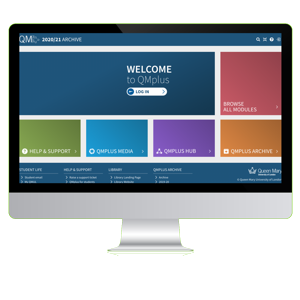 On Thursday November 3rd at 9am, we will be making some changes to how the archives are accessed. This will mean that the archives will be unavailable for a short time while we make the changes. We do not anticipate them being unavailable for more than 30 minutes.
On Thursday November 3rd at 9am, we will be making some changes to how the archives are accessed. This will mean that the archives will be unavailable for a short time while we make the changes. We do not anticipate them being unavailable for more than 30 minutes.
After these changes are made, some of the archives will only be available if you are on a QMUL campus or via the AppsAnywhere service or a virtual network.
We currently keep 5 years of QMplus archives. These archives are snapshots of QMplus as it was in July of the relevant academic year. e.g. the 2021/22 archive is a snapshot of QMplus as it was in July 2022. This allows staff and students to look back on modules they taught, or studied, in previous years.
Find out:
What is changing?
After the changes are made on November 3rd, only the latest archive, for the 2021/22 academic year, will be available on the “open” internet.
All archives older than this will only be available if you are on a QMUL campus or if you are using AppsAnywhere (for staff and students) or a virtual network solution (for staff only).
Who does it affect?
Any member of staff or student who wants to access one of the QMplus archives which is older than 2021/22.
Why are we making this change?
The reason behind this change is security.
- The QMplus archives are running on old technologies which cannot be kept up to date and secure. This makes them a risk.
- We can keep the latest archive, for the 2021/22 academic year, secure. This is why we can continue to allow this archive to be accessed as usual.
Future plans
Over the coming months we will be rethinking how we approach processes such as archiving and rollover. We are aware that there are issues with our current processes and we’ll be looking to find solutions that better meet the needs of staff and students while still allowing us to keep our systems secure.


